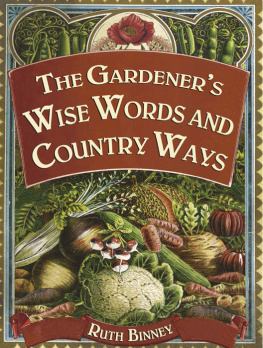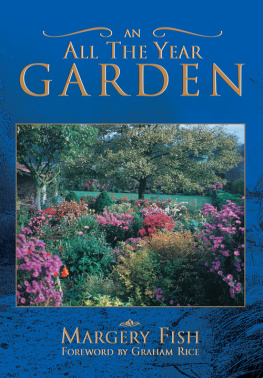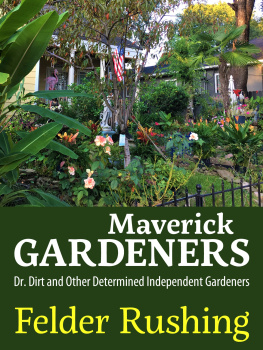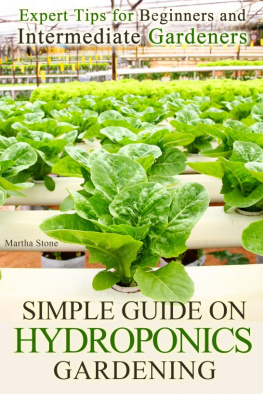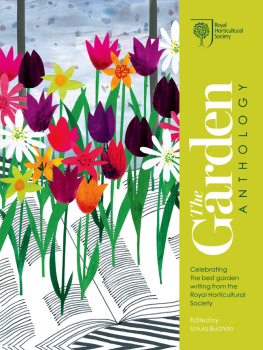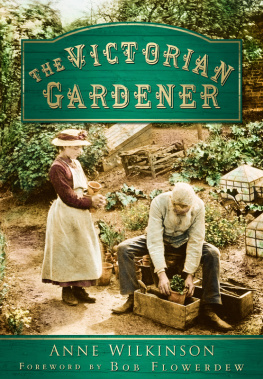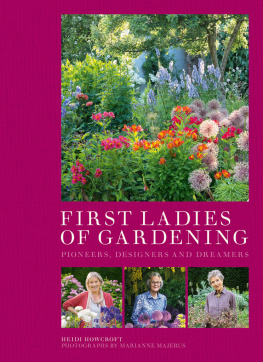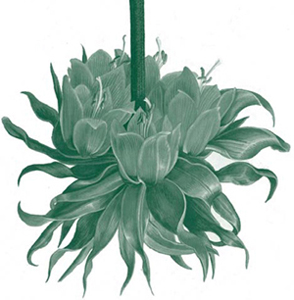
The WRITER in the GARDEN
edited by
JANE GARMEY
Algonquin Books of Chapel Hill

CONTENTS
by Jane Garmey
by Janice Emily Bowers
by Samuel Reynolds Hole
by W. S. Merwin
by Andrew Marvell
by Anne Raver
by Vita Sackville-West
by Paula Deitz
translated by Alexander Pope
by Eleanor Pernyi
by Katherine Mansfield
by Henry Mitchell
by Geoffrey B. Charlesworth
by Abby Adams
by Sara Stein
by Thomas C. Cooper
by Henry Mitchell
by Helen Dillon
by Ken Druse
by Elizabeth von Arnim
by Cynthia Kling
by Mirabel Osler
by Julian Meade
by E. B. White
by Russell Page
by Alexander Pope
by Gertrude Jekyll
by Beverley Nichols
by Geoffrey B. Charlesworth
by Stephen Lacey
by Mirabel Osler
by Vita Sackville-West
by Christopher Lloyd
by Reginald Farrer
by Edith Wharton
by Joseph Wood Krutch
by Elizabeth Lawrence
by Richardson Wright
by Gertrude Jekyll
by Robert Dash
by Joe Eck and Wayne Winterrowd
by Lauren Springer
by Carol Bishop Hipps
by Jamaica Kincaid
by Austin Dobson
by M.F.K. Fisher
by Michael Pollan
by James Schuyler
by Robin Lane Fox
by Maurice Maeterlinck
by Allen Lacy
by Mary Russell Mitford
by Charles Kuralt
by Henry David Thoreau
by Patricia Thorpe
by Theodore Roethke
by Louise Beebe Wilder
by Stephen Lacey
by Katharine S. White
by Thalassa Cruso
by Beverley Nichols
by Celia Thaxter
by Patti Hagan
by Susan Hill and Rory Stuart
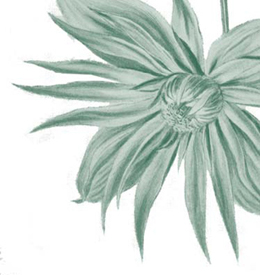
INTRODUCTION
Its amazing how much time one can spend in a garden doing nothing at all. I sometimes think, in fact, that the nicest part of gardening is walking around in a daze, idly deadheading the odd dahlia, wondering where on earth to squeeze in yet another impulse buy, debating whether to move the recalcitrant artemisia one more time, or daydreaming about where to put the pergola. Of course, gardening is time-consuming, repetitive, and, at times, quite discouraging. But precisely because making a garden means constantly making choices, it offers almost limitless possibilities for surprise and satisfaction.
The same is true for books on gardening. They offer all kinds of choices. And the best of them are those in which the writers are willing to share their own experiences as well as admitting to their occasional moments of failure. With disarming generosity, they invite us into their gardens, anguish with us over seemingly insurmountable problems, take us along on philosophical excursions, reveal strange enthusiasms, draw frequently on the past, and speculate on future plans. In other words, they are not just writers, they are practitioners.
A garden writer does not, of course, have to have produced a Sissinghurst, but there is no substitute for having spent two months coaxing a reluctant camellia into bloom. As readers, we dont demand encyclopedic knowledge and may yawn at didactic writing. However, we do look for the discernment that comes from hands-on experience and crave the opinions of those who still have traces of dirt on their hands. We dont at all object to partiality but prefer it braced with intelligence and wit. We love sensual details and quirky perspectives. Most of all, we enjoy a discursive tone and the kind of intuition that results from having been there.
That authority is wonderfully epitomized by the following admonition, administered so gently and firmly by Vita Sackville-West to one of her more curmudgeonly readers:
May I assure the gentleman who writes to me (quite often) from a priory in Sussex that I am not the armchair, library-fireside gardener he evidently suspects, never having performed any single act of gardening myself, and that for the last forty years of my life I have broken my back, my finger-nails, and sometimes my heart, in the practical pursuit of my favorite occupation.
Curiously enough Ive found that most people dont read garden books from cover to cover, even those of a writer as celebrated as Vita Sackville-West. Here is an author whose writing style is lively, sophisticated, at times engagingly diffident. And if this werent enough, who has not heard of that extraordinary garden and that unusual life she led when not writing her columns or tending her garden? Yet, even her books are best read piecemealdipped into at random, a chapter at a time in no particular order, to be enjoyed, put aside, and come back to later.
This way of reading is not undisciplined, although I confess to having once thought it must reveal a character flaw in me, if not some undiagnosed learning disability. I occasionally used to make an effort to mend my ways, but it never made any difference. Then I discovered that others felt the same, that we had each found for ourselves the way garden books were meant to be reada small discovery but liberating. In thinking more about this phenomenon, Ive come to realize that since tastes and obsessions in ones own gardening life fluctuate from season to season, it stands to reason that hardly anyone wants to read everything a particular author has to say about his gardening experiences all at once. But, of course, when we find ourselves, without any warning, who knows why, absolutely smitten by hellebores (a plant genus wed never paid much attention to before), we rush to pull down from the bookshelf our favorite books, those whose authors have taken on the roles of trusted friends and mentors. We must know what Eleanor Pernyi thinks about these plants and theres a special kind of satisfaction in finding out the very spot where Gertrude Jekyll liked to have them in her garden.

Since nothing ever really gets finished in a garden and everything is always in a state of flux, it is usually the process itself that fascinates. For this reason, the best garden writing tends not to be the practical, how-to category of garden book but the work of writers who are meditative and non-prescriptive. Many garden books, in fact, consist of pieces written over a period of time. It is, therefore, a genre of writing particularly well-suited to being anthologized. An anthology becomes a way of extending and prolonging the conversation that runs through any good book of garden writing, allowing the reader to experience several different points of view, to pick up nuance, and even to see genuine disagreement about a topic.
This book began by way of an audio anthology I assembled called The Writer in the Garden. The inspiration for that venture came from once seeing a gardener wearing earphones while weeding. It made me think how pleasant it would be to listen to Henry Mitchell as I grappled with some of those less than thrilling garden chores, how invigorating to plant bulbs in the company of Allen Lacy or Louise Beebe Wilder, and what fun to drive off to the nursery in search of an all elusive Verbena bonariensis while at the same time receiving some practical advice from Elizabeth Lawrence.
Ive now had the luxury of expanding the audio anthology into an actual book. The word
Next page



